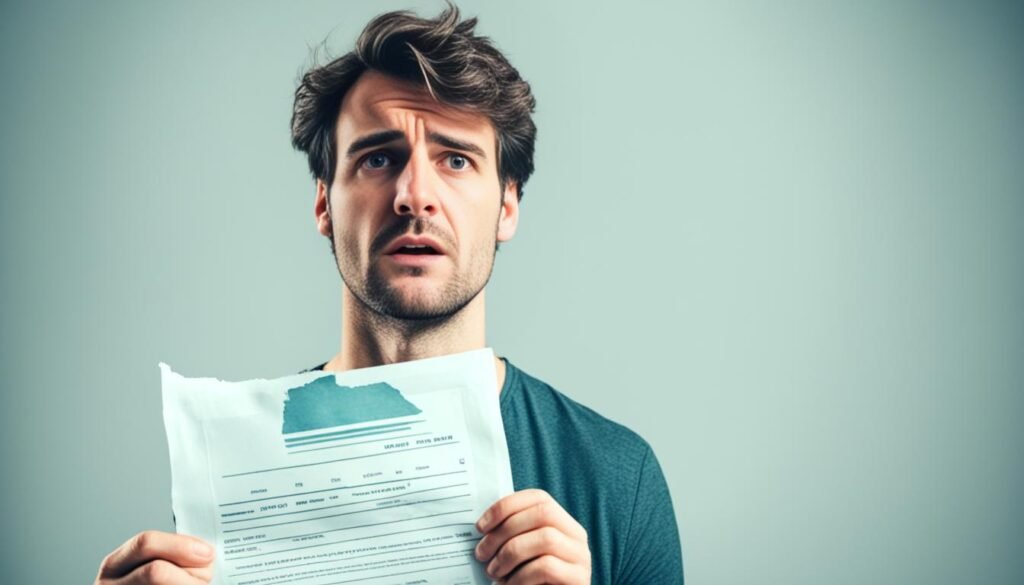Revoking a Power of Attorney (POA) in South Carolina is important and needs careful steps. We’ll show you how to do it right, covering legal needs and possible issues.
In South Carolina, to revoke POA, you need a new document or a revocation letter. You must sign and get it notarized. It’s key to tell your agent and others about this change. The South Carolina Code of Laws (Title 62, Article 5) outlines this process, which usually takes a few days.
Canceling power of attorney in SC is simple but must be done right. Knowing why you’re revoking it and the risks of not doing so is important. This helps you make smart choices about your legal matters.
Key Takeaways
- Revoking POA in South Carolina requires creating a new document or drafting a revocation letter.
- The process is governed by the South Carolina Code of Laws (Title 62, Article 5).
- Notarization and proper notification of relevant parties are essential steps.
- Reasons for revocation include changes in personal circumstances or loss of trust in the agent.
- Failing to revoke a POA when necessary can lead to unauthorized decision-making and financial complications.
- The revocation process can typically be completed within a few days.
Understanding Power of Attorney in South Carolina
In South Carolina, a Power of Attorney (POA) is a key legal tool. It lets someone make decisions for you. We’ll look at the types of POA, the legal rules, and how to properly end it in the Palmetto State.
Types of Power of Attorney
South Carolina has different kinds of POA, each for a special reason:
- General POA: Ends if you become incapacitated
- Durable POA: Keeps going even if you’re incapacitated
- Medical POA: For making healthcare choices
- Limited POA: For certain tasks
Legal Framework in South Carolina
The South Carolina Code of Laws sets the rules for POA. Important points are:
- POAs are assumed to be durable
- You need to get it notarized for it to be valid
- You can name co-agents
- You must be mentally able to make a POA
Importance of Proper Revocation
Ending a durable POA the right way is key in South Carolina. It keeps your interests safe and makes sure your agent’s power stops. You need to make a revocation document, get it notarized, and tell others about it. Knowing how to legally end a POA in SC is important for canceling any kind of POA.
| POA Type | Revocation Process | Key Consideration |
|---|---|---|
| Durable POA | Written notice, notarization, agent notification | Stays valid even if you can’t make decisions |
| Medical POA | Written revocation, tell healthcare providers | Very important for making healthcare choices |
| General POA | Write a notice, destroy the original | Automatically ends if you can’t make decisions |
Reasons for Revoking Power of Attorney
Life changes often mean we need to adjust our legal plans. In South Carolina, people often end their power of attorney (POA) for different reasons. Knowing these reasons can help you decide if it’s time to end your POA in South Carolina.
Change in Personal Circumstances
Big life events might make you want to end your POA. Things like divorce, remarriage, or big financial changes could mean you need new legal papers. In South Carolina, about 2.8 divorces happen per 1,000 people each year. This could affect your POA decisions.
Loss of Trust in the Agent
Trust is key in a POA setup. If you don’t trust your agent to act for you, it’s time to think about ending your POA in South Carolina. This could be because of the agent’s new situation or odd behavior.

Return from Overseas or Military Deployment
Many make a POA before leaving for a long time. When they come back, they often end it. With Fort Jackson in Columbia, SC, having over 50,000 soldiers and civilians every year, this is a common situation in the state.
Remember, ending a POA in South Carolina needs certain steps. It’s not just telling your agent. You must follow legal steps to make sure the ending is valid and recognized.
How to Revoke Power of Attorney in South Carolina
Revoking a power of attorney in South Carolina needs careful steps for legal validity. We’ll help you with the process, focusing on sc laws revoking power of attorney.
First, decide if you need a new POA document or a revocation letter. Make sure to include your name, the agent’s name, and a clear statement of revocation. Sign it in front of two witnesses and a notary public, as the law requires.
Then, tell your agent and others who need to know about the revocation. If you recorded the original POA, file the revocation at the local Register of Deeds Office. Keep a copy for your records.
| Revocation Step | Cost |
|---|---|
| Notary fees | $5 – $10 |
| Recording fees | $10 – $30 |
Remember, you can’t revoke POA after death in South Carolina. The POA ends when the principal dies. It’s wise to work with an attorney to handle the complexities of revoking POA.
Creating a New Power of Attorney Document
When you want to cancel a power of attorney in South Carolina, you often need a new document. This process requires careful thought and following state laws.
Selecting a New Agent
It’s important to choose a trustworthy agent. Look for someone who can take care of your affairs well. They should be good at managing money and making big decisions for you.
Specifying Powers and Limitations
In the new document, be clear about what the agent can do. This could include:
- Managing bank accounts and investments
- Handling real estate transactions
- Making healthcare decisions
- Accessing digital assets
Also, set limits to protect your interests. For instance, you might not let them make big financial moves without your okay first.
Compliance with South Carolina Laws
To follow the law when revoking POA in SC, make sure your new document is signed and notarized correctly. It should clearly say it revokes all previous POAs to avoid any confusion.
Creating a new POA is a way to cancel an old one in South Carolina. Always talk to a lawyer to make sure your document follows all the rules and protects you well.
| Key Aspects | Considerations |
|---|---|
| Agent Selection | Trustworthiness, decision-making ability |
| Powers Granted | Financial management, healthcare decisions, property transactions |
| Limitations | Restrictions on large transactions, specific approvals needed |
| Legal Compliance | Proper execution, notarization, explicit revocation of prior POAs |
Drafting a Revocation Letter
When you want to cancel a power of attorney in SC, making a revocation letter is key. This letter officially ends the agent’s power and keeps your interests safe. We’ll help you make a strong revocation letter for South Carolina.
- Your full name and address
- The agent’s name and address
- Date of the original power of attorney
- Clear statement of revocation
- Declaration that all powers granted are now void
Don’t forget to sign and date the letter. Getting it notarized adds more validity. Many places in South Carolina need a notarized copy when you revoke POA.
After you’ve made the letter, share it with everyone who needs to know. This includes your agent, banks, and healthcare providers. This way, they’ll know about the change in who represents you legally.
By doing these steps, you’ll have a strong revocation letter. It will effectively cancel your power of attorney in SC and protect your interests.
Legal Requirements for Revocation in South Carolina
Revoking a power of attorney in South Carolina has specific steps. We’ll help you follow them to ensure everything is done right.
Notarization Process
In South Carolina, you must have your revocation document notarized. Notary fees are usually between $5 to $10 per signature. This makes your document official and legally valid.
Recording the Revocation
If the original power of attorney was recorded, you must record the revocation too. Go to your local Register of Deeds Office to file it. The cost varies by county but is often between $10 and $30.
Notifying Relevant Parties
SC laws say you must tell all parties affected by the revocation. This includes:
- The agent named in the original document
- Third parties who worked with the agent under the POA
- Banks, financial institutions, and other entities that accepted the POA
Give these parties copies of the revocation document. This keeps them informed and stops any unauthorized actions. Following these steps to revoke POA in SC protects your rights and keeps things clear legally.
Potential Challenges and Considerations
Terminating a durable POA in South Carolina can be tricky. We’ll look at the main issues you might face during this process.
Revoking POA with Limited Mental Capacity
If someone’s mental ability is questioned, revoking a POA gets complicated. In these cases, the court might step in to protect the person’s rights. Getting legal advice from a pro is usually a good idea.
Dealing with Uncooperative Agents
Agents might not want to give up their power. This can start legal fights and make it hard to end a medical POA in South Carolina. In these cases, you might need to go to court to make the principal’s wishes clear.
Legal Implications of Improper Revocation
Revoking a POA the wrong way can cause big problems. It’s important to follow the right steps when ending a durable POA in South Carolina. Not doing so could lead to financial issues or legal trouble.
| Challenge | Potential Solution |
|---|---|
| Limited Mental Capacity | Seek court intervention |
| Uncooperative Agents | Pursue legal action |
| Improper Revocation | Consult with an attorney |
With these challenges, it’s wise to talk to a lawyer. They can help you through the process of ending a medical POA in South Carolina. They make sure you follow the right steps to protect the person’s interests.
Conclusion
Revoking power of attorney in South Carolina is a key step that needs careful thought and the right steps. We’ve looked at how to revoke power of attorney in South Carolina. This includes making a revocation letter and telling others. It’s important to know that some powers of attorney can’t be taken back, so making it right from the start is key.
The laws around revoking POA in South Carolina are complex. With over 4,100 legal templates made for this, many people look for help. Remember, a durable power of attorney stays in effect even if the person giving it becomes unable to make decisions. A springing power of attorney only kicks in under those conditions. These details show why getting legal advice is important when thinking about revoking.
Revoking a power of attorney is a big decision, maybe because of new situations, worries about the agent, or other reasons. It’s important to write down why you’re revoking it and follow the legal steps. If problems come up, our attorneys at Heritance Law are here to help. Contact us now

